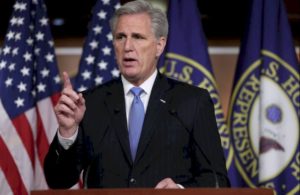Courtesy of the Bastrop Advertiser
Feb. 27, 2020
By Bill McCann
A long-time acquaintance told me a few years back he didn’t believe humans were screwing up the planet. Global warming, if occurring, was simply part of a natural cycle ordained by God, he insisted. Besides, he added, who cares about inconveniencing a few polar bears and Eskimos? That last part in particular got under my skin. We hadn’t communicated in years, until recently.
Now, it seems, he has become a believer about the human-induced climate crisis, even an activist. What changed his mind? I asked. Unhinged hurricanes; 2019′s torrid summer in Europe and elsewhere; wildfires; rising seas; and, most importantly, grandkids passionate about protecting the planet, he answered. To me, it was a telling signal, albeit faint, that the conservative wall of climate denial is cracking.
Meanwhile, there were several loud signals in February. In case you missed them amid the constant distractions from the chaotic White House, here’s a summary.
On Feb. 12, oil and gas giant BP announced it had set a goal of net zero greenhouse gas emissions from the production and use of its gasoline and other products by 2050, according to the Washington Post. The announcement suggests that London-based BP has finally decided to do something significant about a problem the industry has known about, helped exacerbate, and largely ignored for a long time. BP’s decision could pressure other big-oil brethren like ExxonMobil and Chevron — the two biggest oil and gas producers in the U.S. — to similarly confront the looming climate crisis, according to the Washington Post.

BP’s announcement was short on details, as skeptics correctly pointed out. Greenwashing is not new to the energy industry, which has spent hundreds of millions of dollars over the decades trying to convince the public that climate change was not occurring, and then to convince everyone that they weren’t the culprits. But BP does deserve credit for stepping forward at a critical time.
Two days after BP’s announcement, Delta Airlines sounded another climate signal when it revealed plans to become the first carbon-neutral airline. Carbon dioxide and other greenhouse gases trap heat in the atmosphere, warming the land and oceans. Delta pledged to spend $1 billion over the next decade to reduce its carbon dioxide emissions by increasing efficiency, investing in carbon-removal programs, and other initiatives, according to the Guardian. Delta’s move will put pressure on other airlines to follow suit at a time when the United Nations is warning that carbon dioxide emissions from aircraft could triple by 2050, the Guardian stated.
That same week, Republican leaders in Congress also decided to climb on the climate-change bandwagon. House Minority Leader Kevin McCarthy, R-Calif., announced his party’s limited plan to address climate change, focusing on planting trees and on developing technologies to capture carbon dioxide, rather than curtailing the use of carbon dioxide-emitting fossil fuels.
There’s a reason Republicans are starting to show an interest. Polls show that many younger Republicans think the GOP is behind the times in addressing climate change. The GOP does not want to alienate these young people, or worse, lose them to the Democrats, who have called for much more aggressive action on the climate crisis.
Predictably, it wasn’t long before professional deniers attacked the GOP’s modest plan as being too tough. The attacks came from representatives of several conservative “think tanks,” some of which have received funds from big energy over the years.
While the professional-deniers whined, the National Oceanic and Atmospheric Administration announced that the planet just experienced its hottest January in recorded history – two degrees above the 20th century average. The four warmest Januaries all have occurred since 2016. The wall of denial can’t crack and crumble soon enough.




